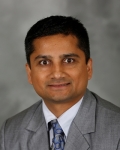Q: What causes a stroke?
A: Strokes can be caused by blood clots that block the flow of blood to the brain. There are large arteries in the neck, called the carotid arteries. They carry blood from the heart to the brain. The blood supplies brain cells (neurons) with the oxygen and nutrients they need to survive and function. A stroke can occur if a blood clot from the heart travels to the brain and cuts off the flow of blood. If a blood clot from the carotid artery breaks off or if the entire artery becomes blocked, a person can have a stroke.
Arteriosclerosis (hardening of the arteries) is a condition that increases the risk of a stroke. Arteriosclerosis can narrow or block the carotid arteries and cause a stroke. Certain medical conditions, such as high blood pressure or diabetes, cause arteriosclerosis of the small blood vessels inside the brain. These diseases increase the risk of a stroke.
For some people who experience a stroke, an exact cause may not be identified.
Q: What kinds of health problems lead to stroke?
A: Many of the same health problems that lead to heart attacks can increase the chances of having a stroke. Cigarette smoking, high blood pressure, high cholesterol, small vessel disease, and diabetes raise one's risk for stroke. Rheumatic heart disease, artificial heart valves, an irregular heart rhythm (fibrillation) and an enlarged heart also increase the probability of having a stroke. The risk of having a stroke is also increased by an inactive lifestyle, heavy consumption of alcohol, and obesity.
Q: How can I tell if I or another person is having a stroke?
A: Symptoms of a stroke include:
- Weakness or paralysis of one side of the face or body, or one arm or leg
- Loss of sensation on one side of the face or the body
- Sudden change in speech, such as the inability to get words out, nonsense speech, or slurred speech
- An inability to swallow
- Drooping on one side of the face
- Sudden mental confusion
- Sudden and severe headache
Q: What should I do if I think I'm having a stroke?
A: Use the F.A.S.T. acronym below to determine if someone is having a stroke:
- Face - Ask the person to smile. Is one side of the face crooked or drooping?
- Arms - Ask the person to raise both arms in the air. Is there difficulty with one arm?
- Speech - Ask the person to speak. Are the words are slurred or is the person unable to speak?
- Time - Time is of the essence.
Q: Why should I hurry to seek medical attention for a stroke? I thought once someone has a stroke, there is nothing else that can be done.
A: A new intravenous treatment, called thrombolysis, can reduce disability from stroke. It must be given within three hours since the symptoms started, so time is essential. Other medical problems, such as high blood sugar, dehydration, and dangerously elevated blood pressure may also require immediate attention. Even if no cure can be found for the stroke, it is very important to understand the cause so another one can be avoided. Also, studies show that the sooner stroke patients receive physical therapy and rehabilitation, the better their functional recovery will be.
Q: How can I prevent another stroke?
A: Other strokes can be prevented only if the cause of stroke is understood. If you have already suffered a stroke, it is important to talk to your healthcare provider. There are many treatments and preventive measures available to you, depending upon your needs.
If blockage of the carotid arteries caused a stroke, surgery can help. It can help increase blood flow through the veins. Anticoagulants (sometimes called "blood-thinners") can help if the blockage is less severe or if blood clots have formed that might break off and float to the brain. Anticoagulants are also used to prevent stroke in people with an irregular heartbeat, recent heart attack, heart valve abnormality, or a heart valve replacement. If high blood pressure was the cause, your healthcare provider will work with you to keep it under control. Drinking alcohol is also a known danger for those who have had a stroke.
Q: What types of medications are used to prevent strokes?
A: The most commonly used medications are aspirin, clopidogrel (Plavix), combination aspirin/extended-release dipyridamole (Aggrenox), ticlopidine (Ticlid), and warfarin (Coumadin).
Aspirin interferes with the ability of blood clotting. It is prescribed in low doses, usually 81 to 325 mg a day. Clopidogrel and ticlopidine affect blood cells. They are sometimes given to people who cannot take aspirin. These medicines are also prescribed to those who had a stroke while taking aspirin. Warfarin is an anticoagulant that reduces the blood's ability to clot. It is especially useful for people who have irregular heart rhythms or other types of heart disease, an abnormal heart valve, or have had a valve replaced. The dose of warfarin will depend on the results of a blood test.
Q: What can I do to reduce my risk for stroke?
A:
- If you smoke, stop.
- Know your numbers: Blood pressure, blood sugar, and cholesterol. Keep these levels within normal range.
- Avoid excessive use of alcohol (no more than two drinks per day).
- Exercise regularly.
- Maintain a healthy body weight.
If you have already had a stroke, learn about medical or surgical treatment options. It is also very important to treat and monitor the existing health problems that led to the first stroke.
Last Updated June 2019

